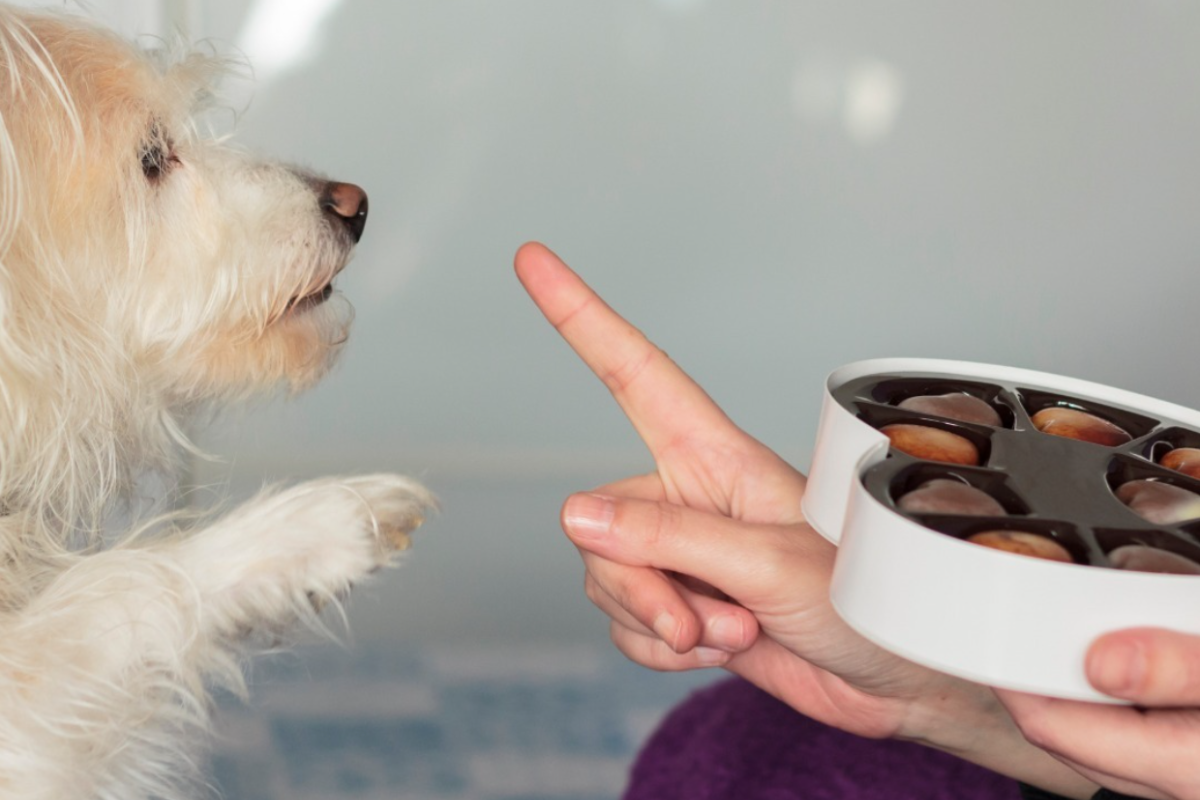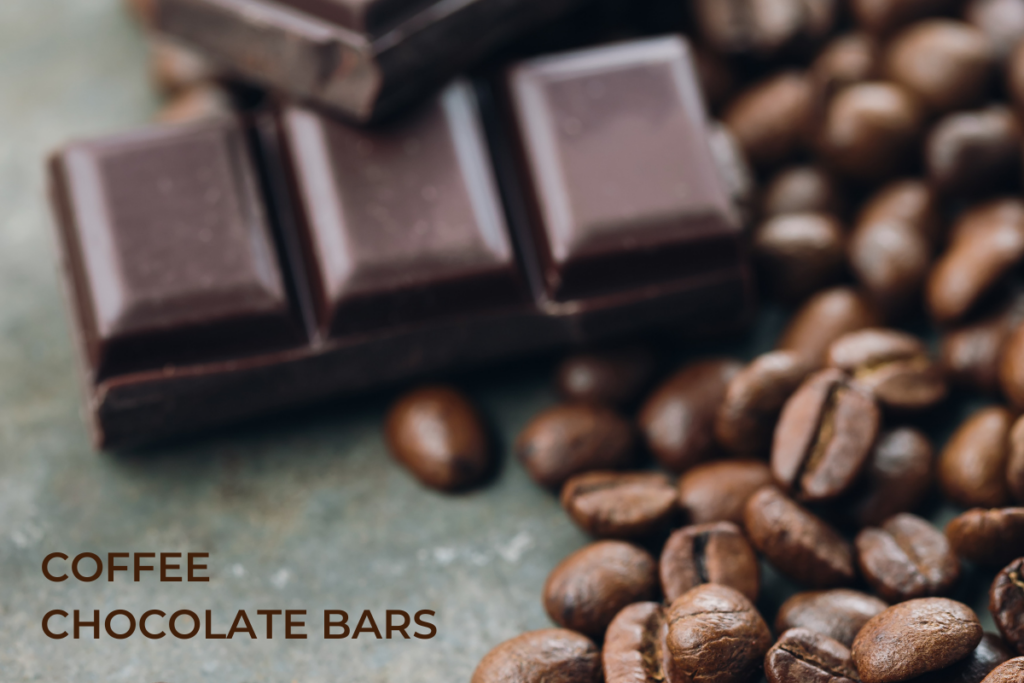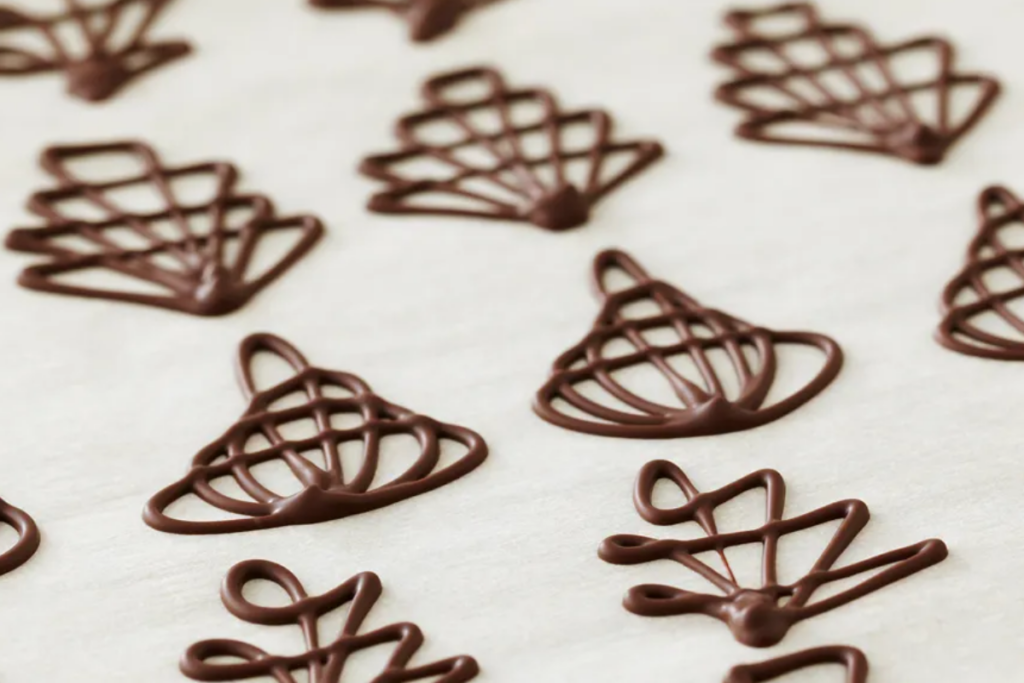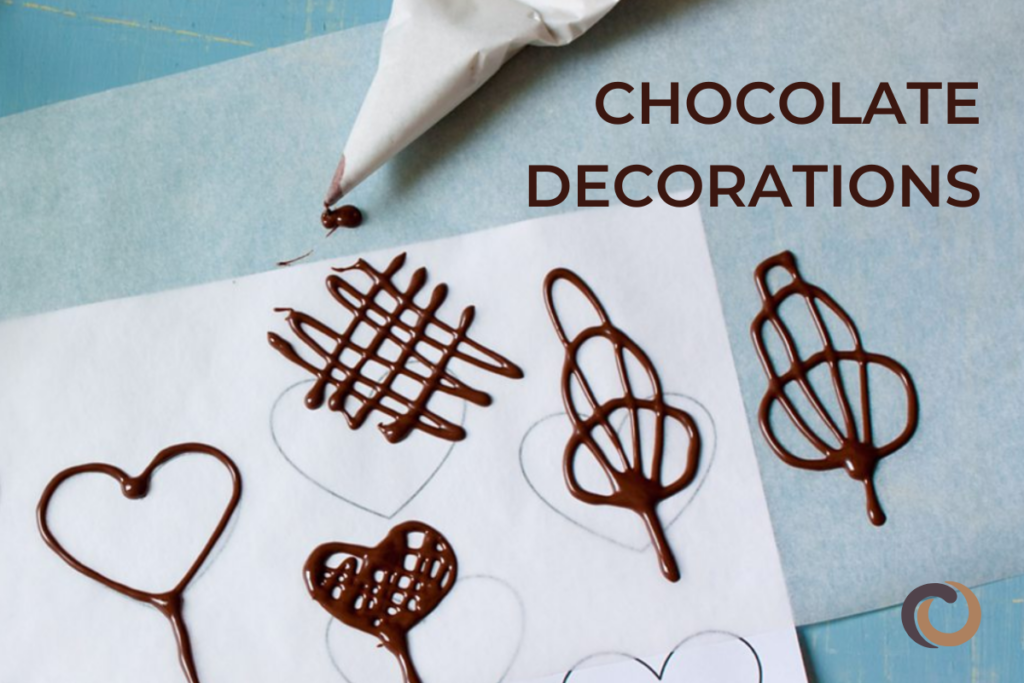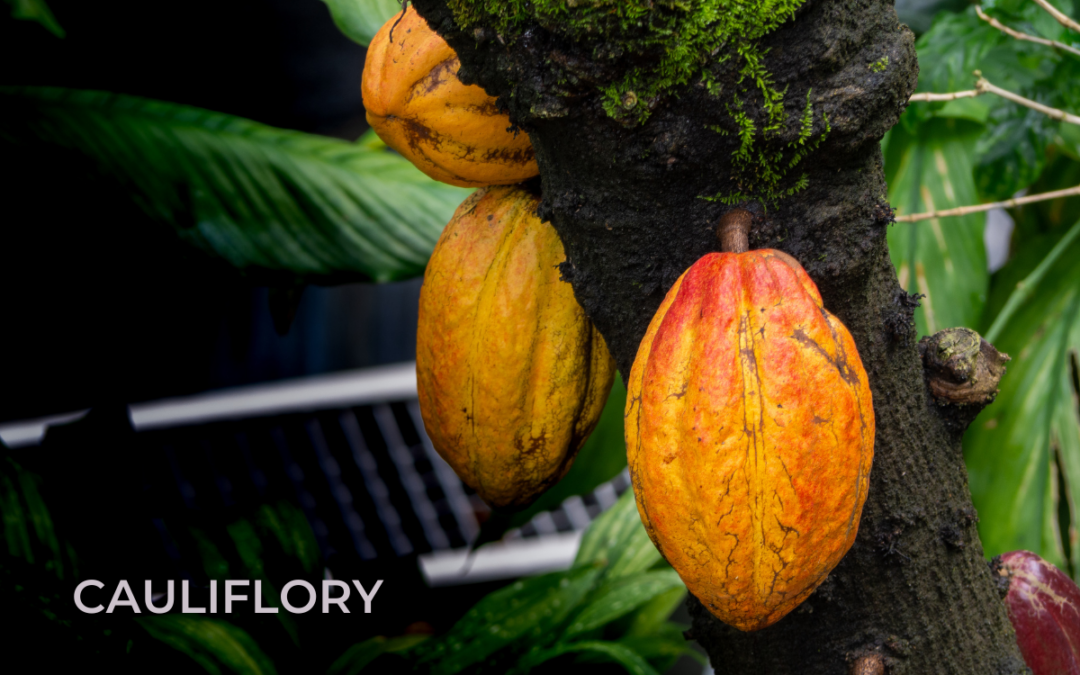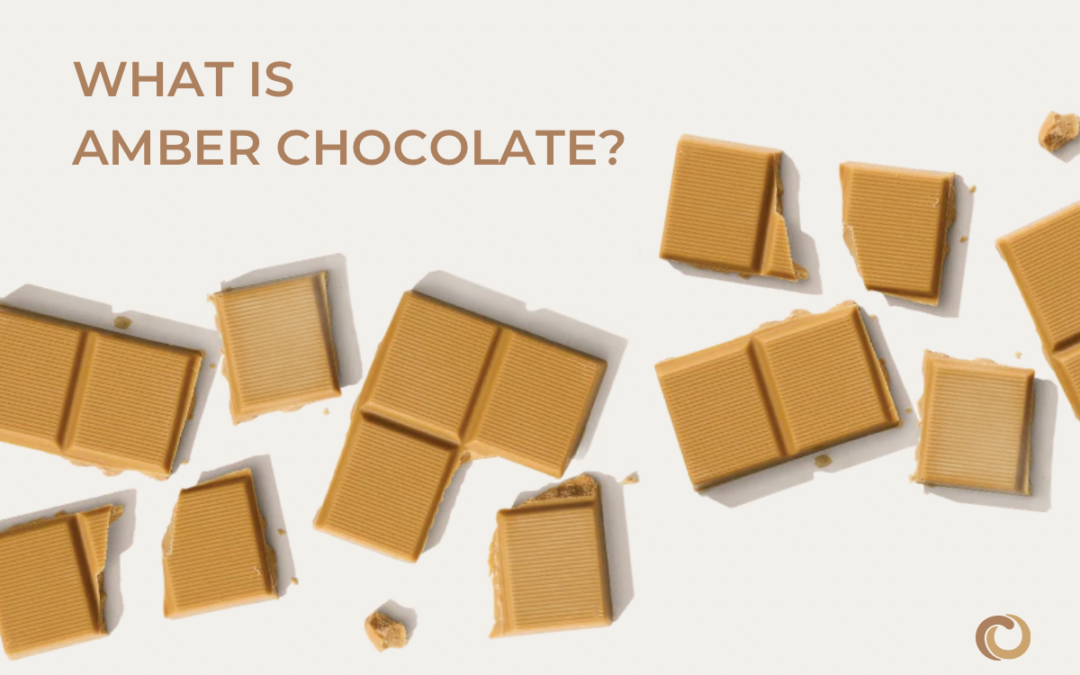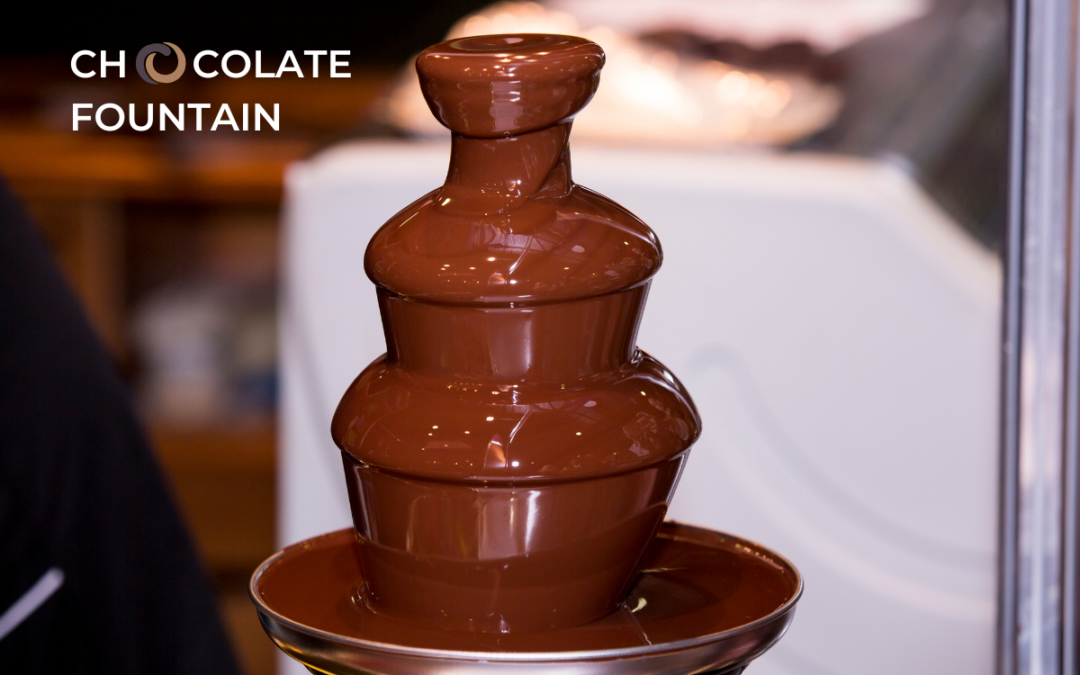Hello dog and chocolate lovers! This article is especially for you. Have you ever wondered why dogs shouldn’t eat chocolate? Join us on this informative journey as we uncover the chocolate-and-dog puzzle. Knowing the ins and outs of this common human indulgence is essential for our furry friends’ health and longevity. Let’s explore the basics of canine nutrition and learn what’s safe and what’s not when it comes to chocolate and man’s best friend.
Why can’t dogs eat chocolate?
That’s right… Dogs and chocolate don’t mix! In short, the stimulants naturally found in most chocolate, caffeine and theobromine, will make dogs sick. Unlike humans, dogs can’t easily metabolize these compounds.
What happens if a dog eats chocolate?
Ingesting any food containing theobromine or caffeine can lead to a build-up of these compounds, becoming toxic for dogs. If you suspect your dog has eaten chocolate, take them to the vet. If you are not sure, closely monitor them for the next 24 hours, as symptoms are likely to develop during this time. The type of chocolate ingested will have an impact on the potential seriousness of the situation. High cocoa % dark chocolate or baking chocolate will have the highest concentration of theobromine and caffeine. Milk chocolate will have significantly less and white chocolate almost none. Keep an eye out for signs of chocolate poisoning in dogs, which include:
- Vomiting and Diarrhea: Digestive issues are common early signs of chocolate toxicity.
- Increased Heart Rate: Theobromine can cause an abnormal heart rhythm, leading to elevated heart rates.
- Restlessness and Hyperactivity: Dogs may exhibit signs of agitation and restlessness.
- Muscle Tremors: Tremors or shaking can occur in more severe cases.
- Seizures: In extreme cases, chocolate toxicity can lead to seizures, coma, and even death.
How much chocolate is toxic to a dog?
The potential harm to a dog depends on factors such as the kind of chocolate, the dog’s size, and how much they ate. As mentioned, dark chocolate and baking chocolate have significantly more theobromine, so they’re riskier for dogs compared to milk chocolate.
As a general guideline, the theobromine content in chocolate is as follows:
- White Chocolate: Contains minimal theobromine and is almost non-toxic. ~0.25 mg per ounce
- Milk Chocolate: Moderate theobromine content. 40-60 mg per ounce
- Dark Chocolate: Higher theobromine content. 150-450 mg per ounce
- Baking Chocolate (unsweetened): Contains the highest theobromine levels and is extremely toxic. 400-450 mg per ounce
As a general rule, mild signs of theobromine poisoning may show up if a dog eats about 20 milligrams of theobromine per pound of their weight. Severe toxicity could happen at around 40-50 milligrams per pound.
If you think your dog has eaten chocolate, it’s really important to get them to the vet right away. Theobromine poisoning can be very serious and even deadly. Always make sure to keep chocolate and anything with cocoa away from your pets.
Does dog friendly chocolate exist?
Yes, there is special ‘chocolate’ made specifically for dogs, at least that’s how they market it. This dog-friendly chocolate is safe for them to eat. Unlike regular chocolate, which can be harmful to dogs due to theobromine and caffeine, the dog-friendly version is crafted with dogs in mind. It often uses carob, a legume that tastes similar to chocolate but lacks the harmful compounds. You can find carob-based dog treats and “chocolates” at pet stores, providing a safe option for dogs to enjoy a chocolate-flavored treat without any risks.
When offering dog-friendly chocolate, always check the label to make sure it’s designed for dogs. And remember, moderation is important; don’t give them too much, even if it’s safe for them.
Now that you understand why your furry friend shouldn’t eat chocolate, be sure to store all chocolate safely in high cabinets where they can’t reach it. It’s crucial to take precautions and let your kids know not to give dogs chocolate. We hope this article was helpful and educational.
For more great articles and recipes, check out the rest of our CocoTerra blog.
If you have any questions or comments, feel free to contact us through our social media channels. We are @cocoterra_co on Instagram and Pinterest and @cocoterraco on X (aka Twitter) and Facebook.

